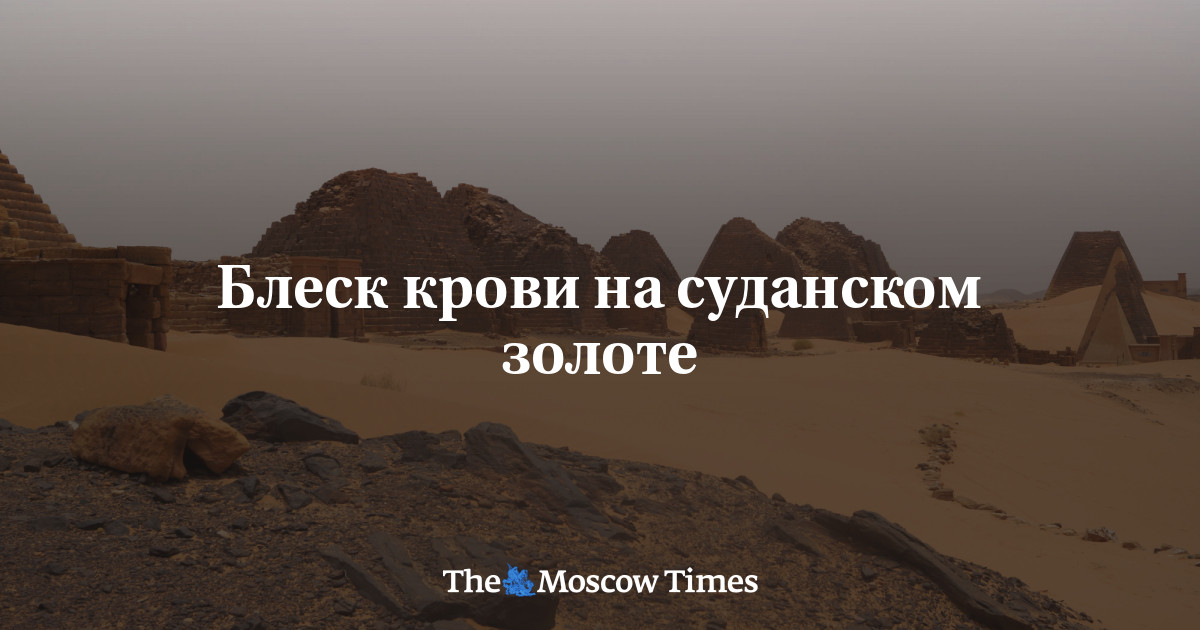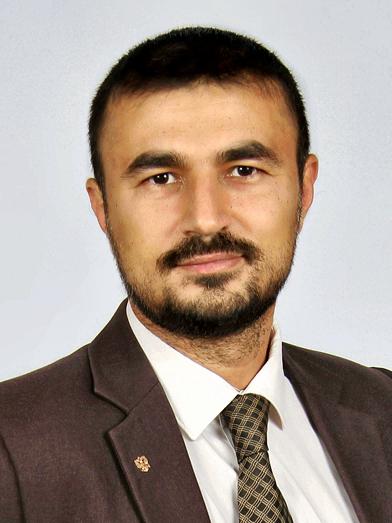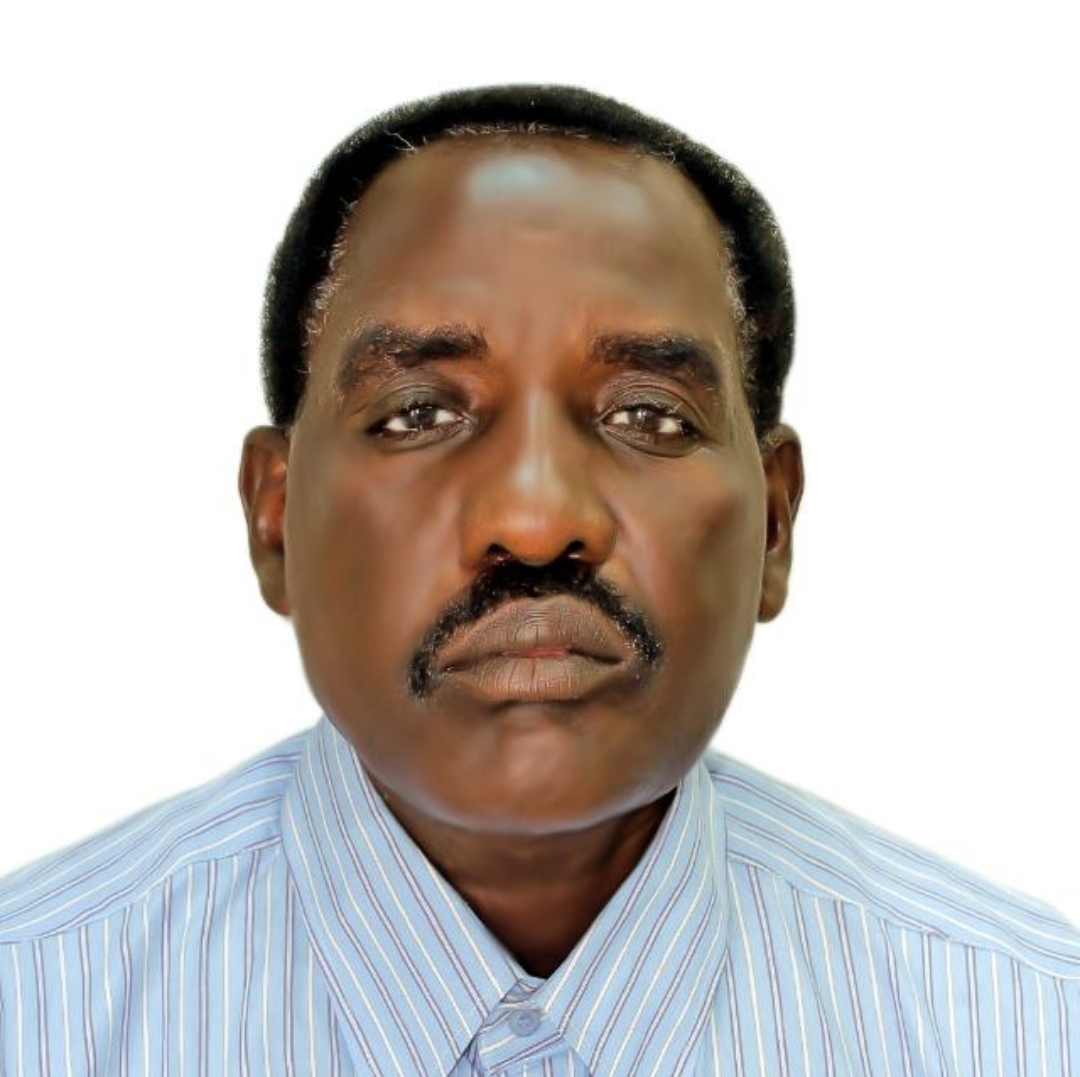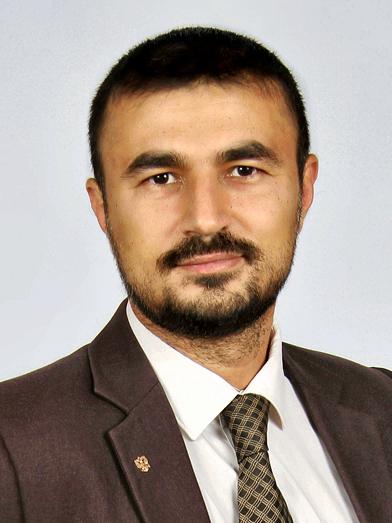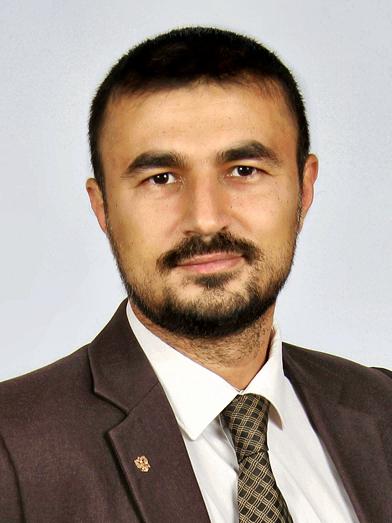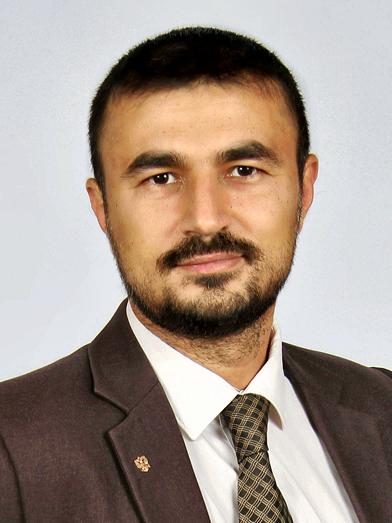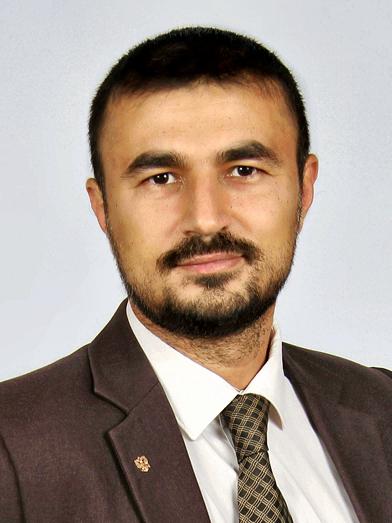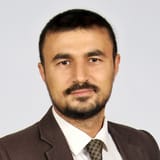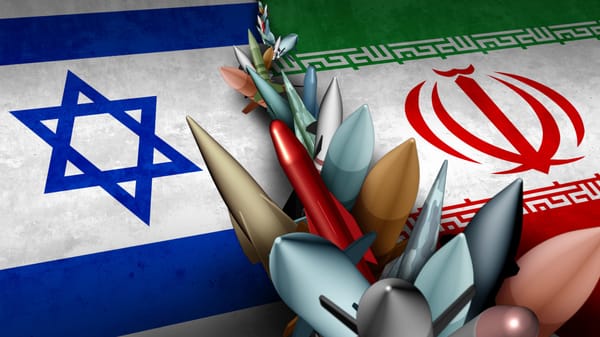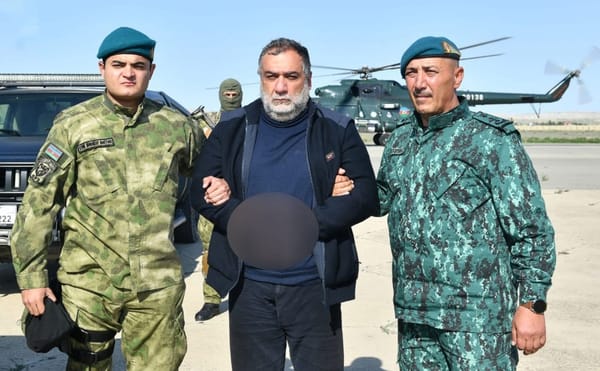The Luster of Blood on Sudanese Gold

In under two years, the bloody civil war in Sudan has claimed the lives of tens of thousands of people. Tens of millions have become refugees and so-called IDPs—internally displaced persons, in other words, refugees within their own country. Until quite recently the largest and wealthiest nation in Africa (the world’s second-largest continent), Sudan is now almost entirely reduced to charred, blood-soaked ruins, and its remaining citizens barely survive, often lacking shelter, food, or even drinking water.
Measured by the sheer scale of devastation, the brutality of war crimes, the number of victims, and the magnitude of the humanitarian catastrophe, Sudan’s civil war far outstrips the merciless Russian-Ukrainian and Israeli-Palestinian conflicts combined. Yet news of this war—viewed by much of the international community as unfolding in some distant, forgotten corner of civilization—rarely appears in the global media.
That is a pity. The tragic example of Sudanese dictator Omar al-Bashir, and the fate of his country—laid waste by him together with Russia’s Wagner Group—should serve as a cautionary tale for many of today’s dictators. All the more so given that Moscow, albeit unintentionally, still played no small part in the collapse of Sudanese statehood.
Sudan and Putin’s Diplomacy
I resigned from Russia’s Foreign Ministry in 2021—shortly before Putin launched his aggression against Ukraine. Of course, I had no idea of Putin’s criminal plans. Rather, having observed firsthand the swift degradation of Russia’s government institutions during my time as a Russian diplomat, it had become painfully clear that I no longer wished to serve under Putin’s dictatorial regime.
My four years in Sudan were a major factor in that decision. There, I served as both the Russian consul and the political officer at the Russian embassy in Khartoum. In my capacity as the latter, I managed what was called the “Darfur file,” meaning all issues related to the aftermath of the genocide committed in the early 2000s by Arab militias—known collectively as the Janjaweed—against the region’s indigenous Black African population in Darfur, Sudan’s westernmost region bordering Chad.
Relations between Sudan and Russia generally took shape around the similarity of their political systems—an alliance of personalist dictatorships led by usurpers and war criminals. At no point did those relations ever address the genuine national interests of either nation or their peoples.
Sudan’s then-president, Omar al-Bashir, a former military officer, seized power in a typical African coup in the early 1990s. But by the mid-2000s, he had already become a complete pariah on the global stage. Like Putin today, he, too, was the subject of an International Criminal Court warrant, issued for his numerous, extremely brutal and loathsome crimes against humanity in Darfur—crimes carried out by his thugs, collectively labeled the Janjaweed.
All his repeated, desperate attempts to break free from international isolation and gain even minimal acceptance from Washington proved futile. One after another, every respectable (i.e., developed democratic) state refused to engage with him.
Hence, Putin’s Russia was, for al-Bashir, the only option in a sea of nothing—he was willing to settle for it, while constantly holding out hope for leniency from the United States. One small gesture from Washington inviting him to dialogue would have made him instantly drop all dealings with Russia or any other country as demanded by the Americans. So Russian-Sudanese relations were, at best, a fragile situational partnership: the West had no desire to engage with al-Bashir’s toxic regime, and Putin was too indiscriminate in his search for international ties.
This, by the way, says a lot about the supposed geopolitical “genius” of Putin—an idea tirelessly promoted by Kremlin propaganda. In reality, the foreign-policy decisions of Russia’s president often reveal shallow analysis, ignoring key factors and risks. That is, if we disregard those decisions deliberately made for corrupt ends and having nothing to do with the nation’s true interests.
Sudan stands as just one example among many.
A characteristic illustration of the above is Putin’s ambitious plan from the late 2010s to establish a fleet resupply point in Port Sudan on the Red Sea, later to be expanded into a full naval base. After Russia’s consolidation in the Syrian port of Tartus—now a place it has to exit from—this indeed looked like a promising next step: it would have extended and strengthened the Russian Navy’s footprint on the global stage. Moscow placed significant importance on this plan; it could have yielded major benefits for Russia had it been pursued by people even slightly more competent than Putin.
In Khartoum, however, approval for building the naval base hinged on Russia meeting its obligations to Sudan—including returning a plot of land in Moscow that had been seized from the Sudanese side in the early 2000s. According to what I heard, the land assigned to the Sudanese in Moscow was sold off in a scheme connected to then-Mayor Luzhkov for the benefit of his wife’s construction business. Therefore, insisting on reciprocity, Sudan refused to allow Russia to start building its embassy on the allotted plot in Soba (southern Khartoum) until Sudan obtained its own site in Moscow. The entire Putin “vertical” could not resolve this. As a result, neither embassy ever got built.
Another area of tension between Putin and al-Bashir stemmed from Russia’s support for General (later Marshal) Khalifa Haftar in Libya. He actively recruited, sometimes even using Russian money, rebel fighters from Darfur opposed to Khartoum, providing them with ongoing combat experience, vehicles (the popular African-style pickup trucks), cash, arms, and ammunition. Returning to Sudan with these resources, they successfully fought Bashir’s army—causing the Sudanese president to grow increasingly annoyed with Russia. A logical outcome of this poorly conceived, inconsistent foreign policy on Moscow’s part was that many Russian projects in Sudan remained unrealized. Among them was the crucial naval resupply point in Port Sudan.
Was backing Libya’s Haftar really worth forgoing a Russian naval base on the Red Sea? Obviously not. But the trouble is, decisions on how relations with Sudan and Libya would develop were being made by the same man who dragged Russia into yet another doomed venture in Syria—and, as in every other instance, Putin’s policy in Africa and the Middle East was neither wise nor professional.
After a few years of diplomatic service, I came to realize that, as a Russian diplomat, I had never truly defended the interests of the country I represented. Through my work and diligence, I merely upheld Putin’s corrupt, anti-popular autocracy and his circle of cronies—bringing more harm than good to Russia. This ran sharply counter to my own principles, convictions, and values. Hence, in 2021, I made the difficult personal decision to stop serving Putin’s criminal regime.
At that time, I was the Russian consul in Algeria. I had already served in fascinating posts in Yemen and Sudan, worked with international organizations, engaged in peacekeeping activities, and much more—experience that would undoubtedly have ensured my further success in the Foreign Ministry. However, the cronyism, corruption, betrayal of national interests in favor of oligarchic ones, the degradation of Russian diplomacy, and its moral decay all completely put me off the idea of continuing my career in Putin’s bureaucratic system.
By leaving the Foreign Ministry, I was certainly losing a great deal. I went from a spacious, elite apartment in a prestigious district of the Algerian capital—offering breathtaking views of forests, mountains, and the Mediterranean—back to a cramped Khrushchev-era panel building in my hometown of Novorossiysk. I traded in a posh embassy vehicle with diplomatic plates for my old personal bicycle. My high-status, well-paid position gave way to piecemeal, occasional work. Instead of diplomatic shipments, I turned to a local supermarket app in search of expiring discounted goods.
My situation was made drastically worse by massive debts I owed to several banks, some of which were sold to collection agencies. By the end of 2021—just a year earlier, I had seen in the New Year with fellow diplomats in a lavish restaurant in the grand medieval Casbah (the “old town” in downtown Algiers)—the Russian court bailiffs, acting at the creditors’ behest, seized all my property, including my bank accounts, and I didn’t even have enough money to declare bankruptcy.
Nevertheless, I willingly and knowingly paid that price in order not to be complicit in Vladimir Putin’s criminal foreign policy. It meant that on February 24, 2022, I was no longer a Russian diplomat and could stand with decent people against the criminal war waged on a fraternal Ukrainian people, rather than share responsibility for it.
I swapped servility to higher-ups and constant compromise of conscience for freedom and the rare privilege—at least in today’s Russia—of calling things by their proper names. Unfortunately, for us Russians living under Putin, this kind of choice can only be an all-or-nothing proposition. We don’t get the option of giving up one thing while keeping the rest. Still, I firmly believe that the ability to speak frankly, without shame or moral torment, in order to teach my children that lying, stealing, and killing are wrong is far more valuable than all the benefits a fascist Putin regime can offer.
The latest events in Ukraine have made it painfully clear that my decision to sever all ties with the Russian Foreign Ministry and the Russian government in general, in its present form under current leadership, was absolutely correct. So much for the claim that a Russian official supposedly can’t just walk off from state service.
To anyone reading these lines who, like I once did, is still working for a Russian civil service that has long since disillusioned you (and I’m sure there are many), yet you hesitate to leave: remember that if you’re not saddled with multi-million-ruble debts, if there’s no enforcement order against you, if bailiffs and collectors aren’t on your trail, you’re already in a much better position than I was when I quit the Foreign Ministry. However, if you firmly know you’re an empty, worthless person, capable of nothing without your job title, suited only to bowing and scraping before your superiors, then by no means follow my path. You’ll never find a place more fitting for you than government service in Russia.
Emergence of the Wagner Group
Let’s return to the years of my assignment in Khartoum in the mid-2010s. It was then that the Wagner Group—a private military company belonging to Yevgeny Prigozhin, a close associate of Putin—began operating actively and expanding its presence in Sudan, as well as in a number of other Middle Eastern and North African countries.
In Russia, it is of course illegal to set up, join, or manage private armies, making Prigozhin’s armed formation criminal from the very start. Yet Wagner, in practice, thrived thanks to Putin’s unofficial support. Under Putin’s protection, many major government procurement contracts in Russia were deliberately awarded to Prigozhin’s networks. For instance, every restaurant and café in the Russian Foreign Ministry building on Smolenskaya Square in Moscow was run exclusively by his company, Concord. That same enterprise also handled food services for almost all government departments and security agencies across Russia.
In Sudan, the main attraction for Yevgeny Prigozhin and Wagner was gold mining. For both dictators—Putin and al-Bashir—this was a lucrative deal: The former gained direct access to the vast natural resources of one of Africa’s largest nations, while the latter secured reliable channels to bypass the many international sanctions targeting his trade in gold. The metal extracted in Sudan mostly reached the global market via the UAE; on Emirati exchanges, it was sold as Russian gold. Thus, Wagner aided al-Bashir in circumventing Western sanctions.
To that end, one of Prigozhin’s closest associates, Mikhail Potepkin, created Meroe Gold, which operated under the brand “M-Invest” in Sudan and had concessions to exploit several promising mining sites. In order to cut production costs and boost profits, gold mining proceeded by the most barbaric methods, relying on the cheap, effectively forced labor of hundreds of ordinary Sudanese. Despite the dangerous use of mercury, local workers were given no protective equipment. According to what I heard, many laborers suffered severe chemical poisoning; some died. M-Invest naturally covered no medical care or compensation to the families of the deceased. Sudanese who tried protesting the Russians’ lawlessness faced brutal reprisals from Wagner with the silent acquiescence of al-Bashir’s law enforcement, and sometimes even its active assistance.
The most notorious of these incidents unfolded near the settlement—and the eponymous gold deposit—of Abu Hamad in Northern State in 2017, where major protests erupted against Wagner and the environmental contamination it had caused. In their crackdown, Russian mercenaries gunned down demonstrators with automatic weapons. The official government in Khartoum not only did nothing to stop them from killing Sudanese citizens but also worked hard to conceal information about that and other similar events. According to off-the-record rumors circulating in Sudan, at least 73 people were shot and killed near Abu Hamad alone, including children. Officially, I fear, no one will ever investigate further—al-Bashir valued gold far more highly than the lives of his citizens.
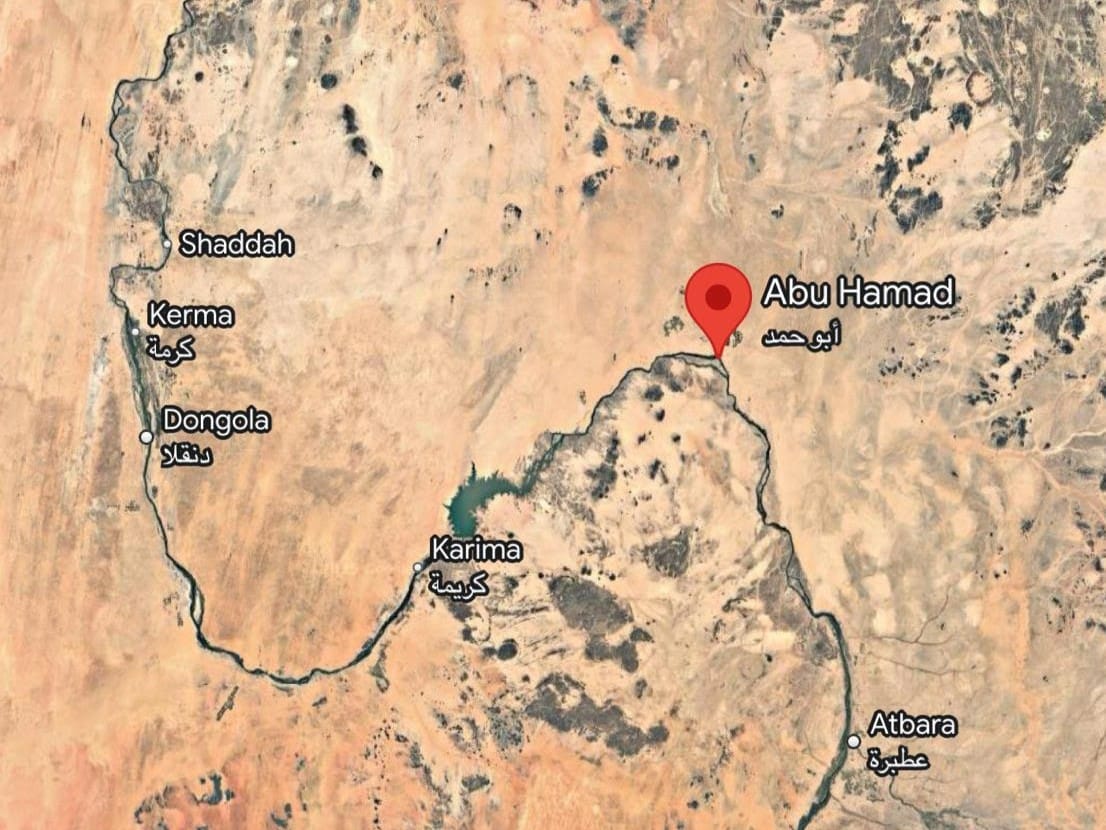
Hence, a Russia that so often accuses European nations of the colonial crimes of bygone centuries itself behaved little better in Sudan in the 21st century. Witnessing how Sudanese people were oppressed in the bloodstained chase for gold, I completely stopped wearing any precious-metal jewelry while I was working in Khartoum—my chain and even my wedding ring—and I continue not to wear such items, out of ethical considerations.
For crimes he committed in part in Sudan—among them serious human rights violations, torture, and extrajudicial killings—Mikhail Potepkin landed on sanction lists of many advanced democratic states. Yet in Khartoum, he lived in utter comfort, leading a lavish lifestyle by local standards. In practice, measured by genuine rather than merely formal powers and by his influence on the development of bilateral relations, he exceeded the Russian ambassador.
A telling example: Fuel shortages often befell Sudan. During such crises, the Sudanese Foreign Ministry provided subsidized gasoline and diesel to the diplomatic corps. Because the Russian embassy had a very small fleet of vehicles, it received a proportionately tiny allocation. At one point, our driver realized that the allocated fuel simply wasn’t enough. Our ambassador appealed for extra quotas at his next meeting at the Sudanese Ministry of Foreign Affairs, but got nowhere. Once Potepkin stepped in, he settled it all with a single phone call.
The Ambassador and Embassy in the Crosshairs
Naturally, the state of affairs in Russian-Sudanese relations—where the financial interests of a criminal circle with friendly ties to Putin took precedence over Russia’s true national interests in one of Africa’s key countries—provoked constant irritation, anger, and disgust among principled diplomats, including Mirgayas Shirinsky, Russia’s ambassador to Sudan from 2013 to 2017.
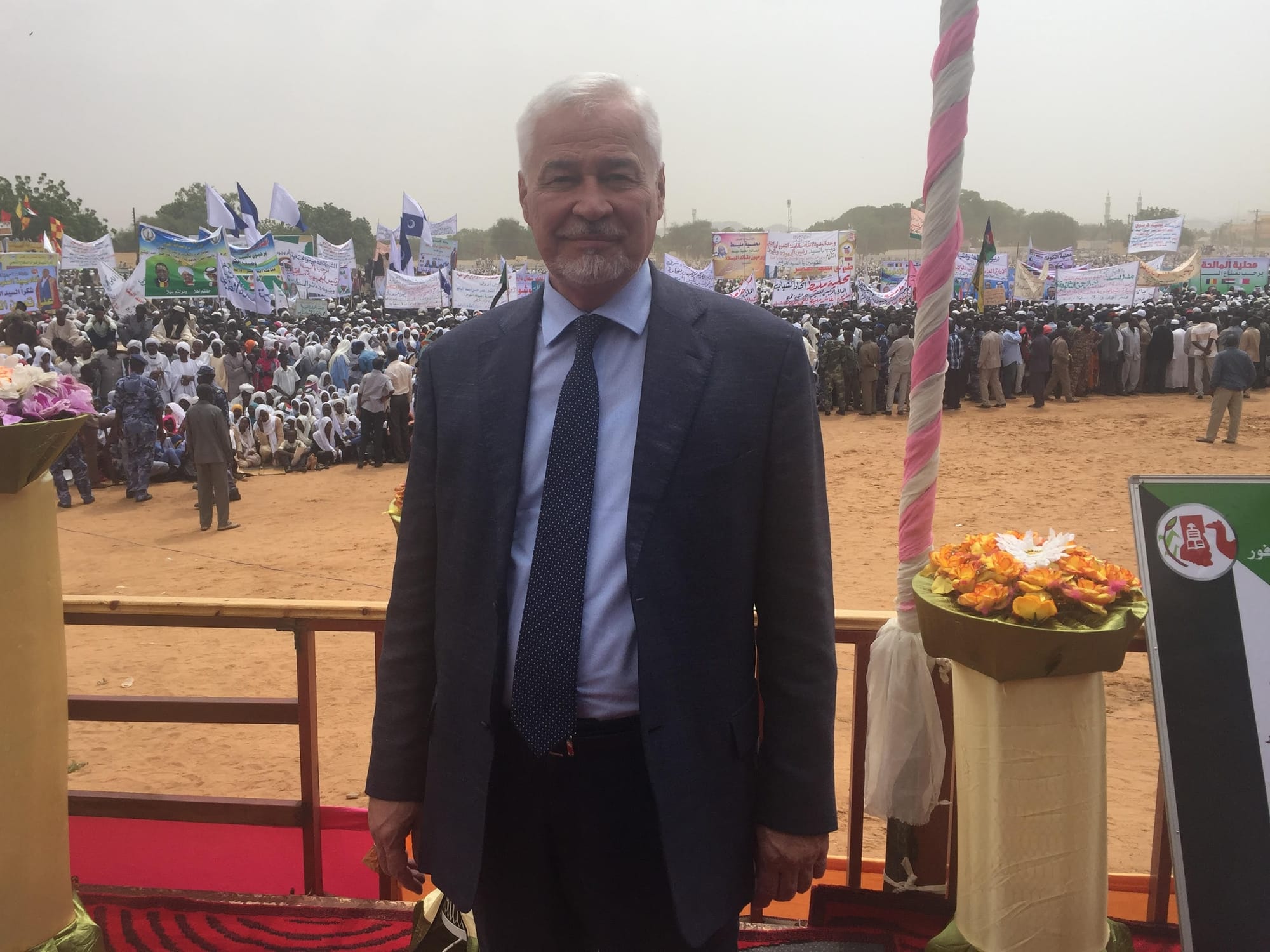
Shirinsky was an outstanding product of the Soviet diplomatic school. During the 1970s, he served as an Arabic-language interpreter for General Secretary of the Communist Party Leonid Brezhnev—one of the first world leaders to visit Sudan after its independence. Shirinsky was both cultured and determined that everything follow proper protocols. In my view, he never fully recognized the reality in which he found himself. That new “Putin reality” meant many African dictators—like General al-Bashir in Sudan or the aforementioned Marshal Haftar in Libya—saw Wagner Group as a legitimate representative of the Russian president. In fairness, that was not far from the truth.
Whereas Wagner and “M-Invest”—Prigozhin’s arm in Sudan—enjoyed effectively unlimited resources, renting out elite villas with pools and gardens for their personnel and driving expensive cars all over Sudan, Russia’s Embassy often could not afford the most basic expenses—like housing for its staff, forcing them to live in the embassy compound itself. It was actually a former residential building, rented for the Soviet mission back in the day and never once properly renovated since.
The building housed not only the offices of the ambassador, the military attaché, other diplomats, the chancery, the coded communications section, and so on, but even dormitory rooms for technical staff. Among the rest of the diplomatic corps, one could only find such a dismal arrangement in the missions of the poorest and least-developed African nations. Inviting diplomats from other embassies for meetings there was a constant source of shame, as they had to come to meet me via a broken, rusted gate—sometimes weaving around embassy tech staff returning from shops or the market. More than once, a staff member would be cooking something and the smell would drift throughout the building. I was often so embarrassed that I preferred to go visit colleagues at their workplaces, despite Sudan’s scorching heat, filthy streets, and terrible traffic.
By contrast, the American Embassy on the outskirts of Khartoum boasted an entire campus with multistory offices, residential blocks, and even its own store. There were full-fledged roads inside their grounds, complete with markings, traffic signs, and stoplights. The parking lot alone—outside the gates—covered an area at least ten times the total size of our mission. It looked like a fragment of New York transplanted into Sudan’s capital. Meanwhile, practically next door sat an empty, weed-strewn plot in the Soba neighborhood, designated for a future Russian Embassy. Had Sudan not been cheated out of its promised property in Moscow, and had Russia managed to build its own compound, we might have worked under conditions comparable to those of the Americans.
Another telling incident happened in 2016, when initial street clashes broke out in Khartoum, bringing a risk of broader unrest. Moscow decided to send an operational combat team called “Zaslon” (a special unit of the Foreign Intelligence Service responsible for protecting Russian diplomatic missions) to Khartoum. Only four people arrived, but the embassy building they were supposed to defend didn’t even have a single spare room for them. Every inch of space—cramped, unpleasant—was already occupied by technical staff. The ambassador entrusted me with finding housing for some of these staff to free up space for the “Zaslon” group, but Moscow provided virtually no funds. So, ignoring all official ministry regulations and housing standards, I was forced to rent them very poor apartments—so terrible, quite possibly no ordinary Sudanese would have wanted to live there.
What struck me most was something else, though. I recall, quite embarrassed to have any part in it, showing one such run-down, miserable apartment to the ambassador’s driver and his wife, who were being moved there. They walked around with grim, sullen expressions; at first, I took them for disgusted by the deplorable condition of the place. I tried awkwardly to reassure them, promising I’d do whatever I could to improve matters. I said I’d come by to translate with the landlord whenever they needed.
— What’s there to talk about? — the driver replied with a weary shrug. — Just ask him if he can set us up with Channel One here. (At the old embassy building they had Russian TV.)
— Oh, that’s no problem, — I said. — I’m sure our engineer could configure it for you tonight after work.
— Really? — they both brightened. — Then we’re fine living here!
Honestly, I had never thought about how deeply ordinary Russians depend on television propaganda. For myself, Sudan’s satellite package—over a thousand channels from around the globe—always sufficed. It had never even occurred to me to request Channel One in Sudan or regard it as such a powerful incentive to overlook dismal housing conditions.
In his encrypted correspondence with Moscow, Ambassador Shirinsky routinely described our situation—where we had to live and work—as a “disgrace” or a “disaster.” And in unofficial conversation, including with Wagner personnel, he sometimes used stronger words. This mutual, behind-the-scenes hostility led to rampant speculation after the ambassador’s highly suspicious death in his residence’s swimming pool in Bahri on August 23, 2017.
I have no direct proof that any of Mikhail Potepkin’s people or Wagner mercenaries were involved in the murder of my former boss, but many aspects surrounding that incident defy easy explanation. First, at least two “Zaslon” bodyguards—who had arrived a year earlier to protect our mission—were present at his residence at the time. (That’s half their entire Khartoum team.) None of them bore any consequences, despite being officially tasked above all else with securing the top figure in the embassy. Second, right after Shirinsky’s death, we received a coded directive from Moscow strictly forbidding any Sudanese autopsy. And so I, along with other embassy staff, had to help carry out this instruction. Had our attempts failed, we might today know far more about that day’s events.
The vacant ambassadorial post was filled by Vladimir Zheltov, who had previously served as an adviser in Syria—where Wagner had already gained significant clout. In private talks with subordinates, Zheltov hinted at his wide-ranging experience handling delicate, classified assignments, including in service to Wagner. Alongside that and his apparent flair for corruption (seen, for instance, in his questionable dealings around staff housing), Zheltov also fostered good relations with Wagner’s leadership. More than once he attended closed-door meetings between Yevgeny Prigozhin and President al-Bashir, and joined them on secret military training grounds near Sudan’s capital, where Wagner fighters trained the Sudanese army. Under Zheltov, Mikhail Potepkin and other M-Invest staff visited the Russian Embassy far more frequently.
Around that same time, mid-2018, a group of economic experts arrived from Moscow to advise Sudan’s Ministry of Finance. The move had largely been lobbied by Wagner. One of their translators was a former coworker of mine from Channel One, where I had worked until switching to diplomatic service from 2006 to 2010. Through our chats, I learned how dire Sudan’s economy was. Hard to say whether its subsequent collapse was caused by unprofessional Russian advisors or whether U.S. and international sanctions finally finished it off, but by the time I left Khartoum in November 2018, inflation had skyrocketed, stores were empty, and bread and fuel supplies were in crisis.
Against this backdrop, on November 9, 2018, Russian Deputy Foreign Minister Mikhail Bogdanov—Putin’s Special Representative for the Middle East and Africa—arrived in Khartoum on a “working visit,” traveling aboard the private plane of his friend, businessman Boris Ivanov, who was then Managing Director of Canadian-Dutch firm GPB Global Resources B.V. And indeed, Ivanov accompanied him everywhere. Throughout every meeting—ranging from President al-Bashir down to individual ministers—Bogdanov began negotiations by advancing his friend’s business interests. Only once all of them were thoroughly secured did he turn to the “official” purpose of his trip. That level of corruption and backroom dealing was shockingly brazen, even by African standards.
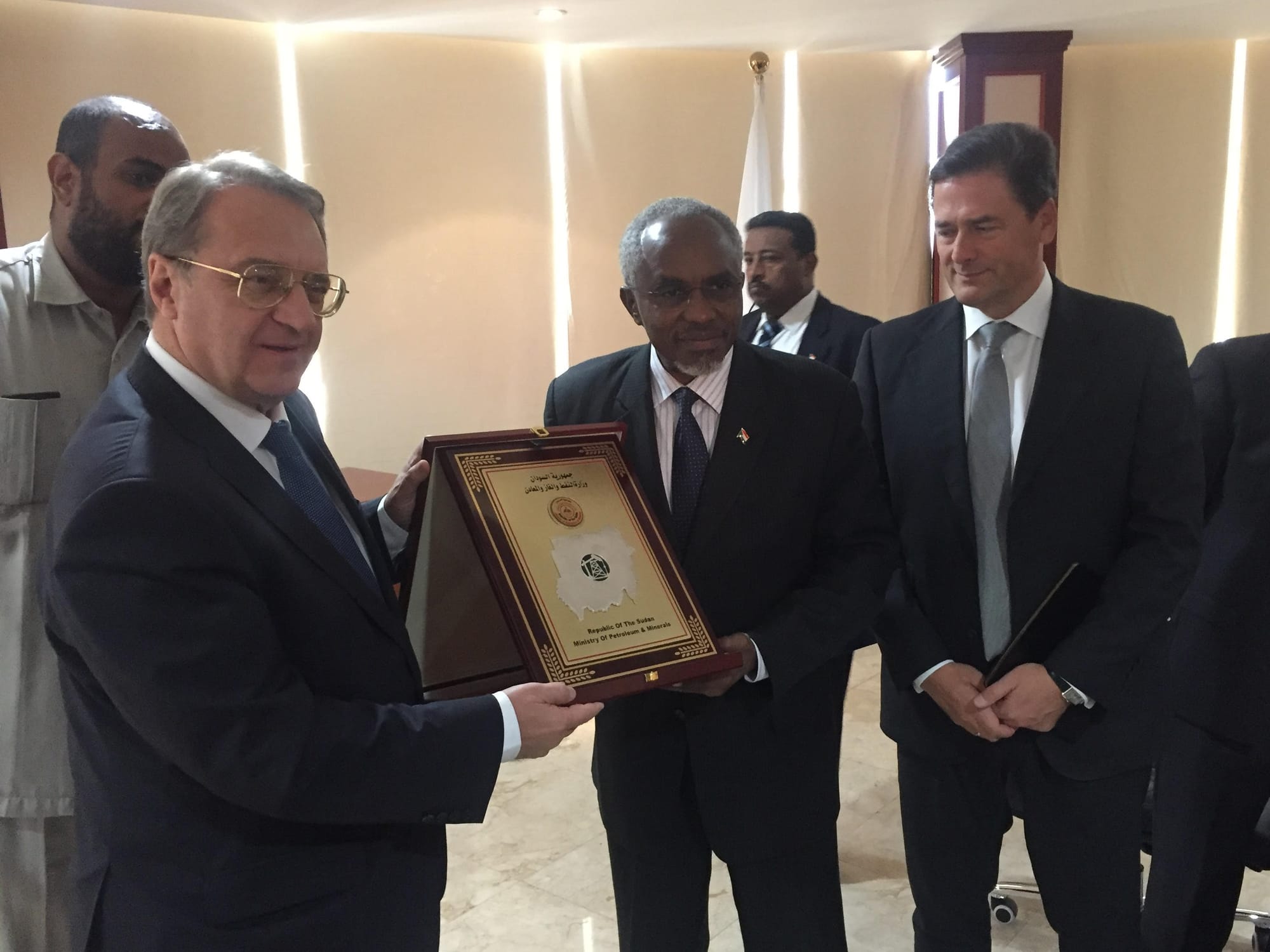
In the afternoon, due to a scheduling mix-up on the Sudanese side (the Foreign Ministry’s protocol department hadn’t coordinated actions with the National Intelligence and Security Service staff), things went awry. At 3:00 p.m., instead of taking us to see NISS head S. Ghosh, they brought us to meet with A. al-Jaz, the president’s adviser for developing relations with BRICS countries. For B. R. Ivanov—who was clearly more interested in discussing the security of the gold mines belonging to their Sudanese affiliate, Kush—talks with Ghosh were obviously more important than meeting with al-Jaz. He reacted quite rudely: swore at our ambassador, tried to turn the motorcade around, and leave without even entering the building.
M. L. Bogdanov did little, to put it mildly, to rein in his friend’s behavior. Perhaps, when you’re flying on someone else’s plane and staying in a presidential suite courtesy of a private company (which, as it turned out, is registered in Canada rather than Russia), it’s indeed difficult to object...
Apparently, that’s why a Russian delegation’s meeting—supposedly aimed at advancing bilateral relations—can be so casually canceled at the behest of a private firm that’s using the visit to negotiate its own business projects.
Sudanese Horrors
A few months after my posting ended, in early 2019, the Sudanese army staged a coup and deposed President al-Bashir. Power in the country shifted to the Transitional Military Council under General Abdel Fattah al-Burhan. Omar al-Bashir was arrested, thrown into Kobar prison in Khartoum, and put on trial. The “Russian friends” in whom he had placed such ill-considered trust simply abandoned him—just as, five years later, they would leave another crony of theirs, the dictator and war criminal Bashar al-Assad in Syria in 2024, just as they always ultimately abandon all their allies.
In December 2019, Sudan’s former president was found guilty of numerous crimes and sentenced to prison. In February 2020, the Sudanese government agreed to hand him over to the International Criminal Court (ICC) for the charges of genocide and war crimes in Darfur. In practice, this handover has still not taken place, due to certain procedural obstacles and also because of al-Bashir’s health (he suffers from heart ailments).
In April 2023, conflict erupted between Sudan’s army—now led by the coup’s General al-Burhan—and the Rapid Support Forces (formed by al-Bashir in 2013 in essentially the same mold as Wagner), commanded by the notorious General Mohammed Hamdan Dagalo. The dispute arose over disagreements regarding the division of power; it almost instantly escalated into a civil war. The result has been tremendous civilian casualties and a severe worsening of the humanitarian crisis in a nation that was already devastated.
As of today, the situation in Sudan remains dire. The bloody civil war continues, with over 150,000 casualties. Close to 11 million have lost their homes and become IDPs (internally displaced persons), while more than 2.3 million are refugees who have fled to neighboring countries. While the world’s attention focuses on tiny Palestine—now under Israeli counterattacks following its own aggression of October 7, 2023—nobody on the planet seems concerned about the massive country of Sudan, turned into a living hell. And conditions there keep deteriorating at an alarming pace. As someone who truly came to love that land, I find it heartbreaking to watch.
The sad story of Sudan—once one of the largest, most beautiful, and most affluent African countries—makes it clear just how inept the foreign policy of Vladimir Putin, Sergey Lavrov, Mikhail Bogdanov, and various lesser-ranked Russian “diplomatic” crooks truly is, and how destructive it can be both for Russia and for any country unwise enough to consider Russia a friend. In that sense, today’s civil war in Sudan, fueled in part by Russian mercenaries, belongs in the same category as the war in Ukraine unleashed by the Kremlin and Israel’s defensive war against Hamas terrorists, who likewise enjoyed generous financial and active political support from Moscow.
Nevertheless, I hold out hope that Sudan will overcome its current crisis, reclaim its footing in cooperation with the world’s more advanced nations, and secure a rightful place among the African continent’s leading countries. At the very least, I dream that Khartoum might once again be as beautiful and safe a city as I remember. I dream of revisiting the ancient Meroe Pyramids in Bajrawiya and sipping delicious Sudanese tea on the banks of the White Nile. And so I wish all my Sudanese friends happiness, prosperity, and peace overhead.
You can download the text of this article in English or Russian at the link below.
This article is also published in other media.
